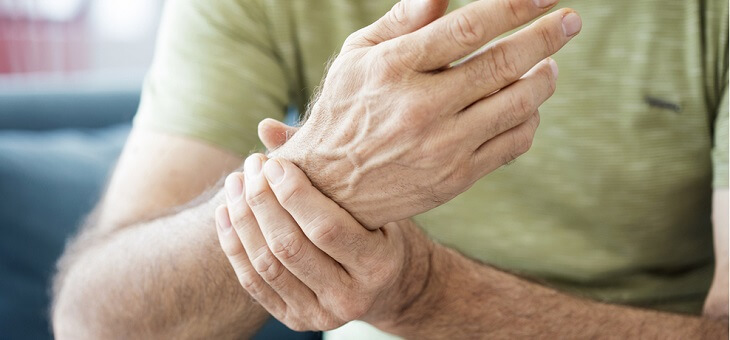Ageing can take its toll on your body and joints. Your movements and reflexes get a little slower, your bones lose their density and you might notice a few more clicks and creaks than usual. But luckily, there are steps you can take to preserve and protect your bones, joints and muscles.
If you like to crack your knuckles, have noticed your knees creaking when going upstairs or have a popping sound in your ankles while walking, it’s not always something to worry about.
Read: Orthopaedic surgeon tells how to lower your risk of arthritis
What do noisy joints mean?
Several things can cause creaky joints. The first is often an escape of air. Synovial fluid lubricates joints, and this fluid is made of oxygen, carbon dioxide, and nitrogen. Sometimes when the joint moves, gas is released, and you hear the popping or cracking noise.
Typically, it’s not actually the bones that are creaking, but structures coming into contact with bones that cause the noise. As you age, the cartilage covering the ends of bones can wear down, causing some rough areas. When soft tissues such as a tendon glide over these rough areas during movement, it can produce a grinding or crunching sound.
This creaking and clicking of bones and joints are referred to as crepitus. If it’s just noise such as pops and snaps when you move, there’s typically no need to be alarmed. However, noise accompanied by pain and inflammation should be a reason to see your doctor.
How to protect your joints
Maintain a healthy weight
Because our joints are weight-bearing, carrying a few extra pounds can put unnecessary strain on them, possibly leading to pain and other problems. Maintaining a healthy weight for your height and body type is important for your mobility and overall long-term health.
Eat a balanced diet
Eating a well-balanced diet is important for maintaining your overall health, as well as for your bone, joint and muscle health. Ensure that you have plenty of vegetables, fresh fruits, lean proteins and whole grains, and limit your intake of foods that are processed or high in sugar, salt, fat or carbohydrates.
Read: Could an anti-inflammatory diet transform your health?
Cut back on alcohol
Sources close to the Queen have revealed royal doctors have prescribed only alcohol-free beverages for the 95-year-old monarch.
“The Queen has been told to give up her evening drink, which is usually a martini,” a family friend is said to have told Vanity Fair.
“It’s not really a big deal for her, she is not a big drinker but it seems a trifle unfair that at this stage in her life she’s having to give up one of very few pleasures.”
While the Queen is in good health, she was sighted using a cane for the first time in 17 years while attending a service at Westminster Abbey in 2021.
Inflammation is the cause of many symptoms of arthritis, including joint pain, stiffness and fatigue. And, while some sources show that moderate drinking can reduce certain markers of inflammation, heavy alcohol use can increase inflammation in the body.
One study discovered a correlation between beer drinking and higher risks of knee and hip osteoarthritis, while another found that red wine can actually ease symptoms.
Too much of any alcohol can damage the gut and liver though and scientists have linked excessive alcohol consumption with chronic inflammation.
Get enough calcium
The Recommended Daily Intake (RDI) of calcium for adults aged 19 to 50 years in Australia is 1000mg/day. This increases to 1300mg/day for women over 50 years of age and men aged over 70 years. As calcium is not made in the body it must be absorbed from our food and drink.
Dairy products such as milk, cheese, and yogurt, along with dark leafy greens and broccoli and certain types of fish such as salmon give you the calcium that’s so critical for bone strength. Look for calcium supplements also containing Vitamin D.
Read: Are you getting enough calcium?
Stay active but rest when necessary
The key to continued mobility as you age is staying active. But, getting up and about is just as important as knowing when your body needs to rest. Load bearing activities such as walking, jogging or bodyweight exercises help to boost our bone strength but those activities are harder on our joints.
Low impact exercises such as stretching and yoga poses are excellent for core strengthening, improving your balance and increasing flexibility, all of which can protect you against falls, and help with posture.
Check with your doctor before starting a new exercise regime.
Sitting has been called ‘the new smoking’ because it has been linked to so many problems. Crepitus can be triggered by sitting too much; the more you move, the better the body lubricates its joints and the less noise they make.
Remember, joint noises are pretty common, and they will become even more common with age. Listen to your body. Joint noise without pain is not a major concern, although it could be a warning sign for some people. Joint pain plus pain or swelling needs medical attention.
If you enjoy our content, don’t keep it to yourself. Share our free eNews with your friends and encourage them to sign up.
Disclaimer: This article contains general information about health issues and is not advice. For health advice, consult your medical practitioner.

